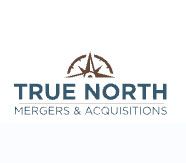The Role of Private Equity in M&A Deals

True North Mergers & Acquisitions
May 17, 2024

Recession anxiety and volatile financial markets may have slowed a decade-long growth spurt in private equity and merger and acquisition activity. Yet, the fog of uncertainty is lifting. Confidence in our economy is up, and all signs point to the private equity merger and acquisition market regaining strength throughout the remainder of 2024.
As economic conditions stabilize and investor confidence grows, private equity firms have increasingly turned to mergers and acquisitions as a key growth strategy. But why? What benefits do these deals offer private equity firms and the target entities they’re after? We’ll tell you everything you need to know here.
Why Private Equity Firms Pursue Mergers & Acquisitions
Fast Growth
Mergers and acquisitions offer quick-growth opportunities, allowing private equity firms to quickly add new products and services to their investment portfolios. Strategic “bolt-on” acquisitions, in particular, are on the rise. By adopting this strategy, a private equity firm acquires a smaller company, using it as a base (or “bolt-on”) to complement existing services. This approach accelerates growth and strengthens the firm’s competitive position in the market.
Hidden Potential
Private equity firms may not exclusively target struggling businesses. Yet, they often see potential where others don’t. This approach enables them to identify companies struggling due to inefficiencies such as outdated business models, industry disruptions, or lackluster cost structures—inefficiencies private equity firms can quickly address, allowing them to unlock hidden growth potential.
Fix and Flip
Private equity firms often buy companies at a low price and reinvest in them by streamlining inefficiencies and improving performance. It’s a “buy, fix, and sell” strategy. Once the acquired company begins generating higher profits, the private equity firm may choose to sell it at a premium—either to another company or an initial public offering. The proceeds are then distributed to the private equity firm’s investors.
Direct Lending
In 2023, we saw a bank lending slowdown following several regional lenders’ collapse. In response, private equity firms stepped in, offering an alternative, direct lending source for corporate borrowers. This appealed to private equity firms—not only because they could charge higher interest rates but also because it allowed firms to diversify their investment portfolios and cater to investors looking for alternative options to traditional private equity investments. But there’s more.
Direct lending also allows private equity firms to invest their capital in several different ways, opening up the potential for steadier returns in an uncertain economy. This approach reduces risk and strengthens existing portfolios.
The Role of Private Equity Firms in Mergers & Acquisitions
It’s clear—mergers and acquisitions offer significant benefits to private equity firms, from accelerating growth to diversifying investments and mitigating risk. But how exactly do these firms contribute to the success of a deal?
Financing
Private equity firms use their finance, accounting, and investment banking expertise to provide the necessary capital to complete transactions. They also understand the market and regulations, allowing firms to identify trends and opportunities while structuring compliant deals.
Identifying Opportunities
Private equity firms pinpoint companies poised for growth and put them through a rigorous vetting process. This typically entails scrutinizing the target company's financial statements, operations, key business drivers, risks, and growth potential.
Improving Operations
Beyond resources, private equity firms have operational expertise. They can spot inefficiencies that slow growth and take a hands-on approach to streamlining processes, optimizing workflows, and transforming struggling companies into profitable enterprises.
Facilitating Smooth Integration
Once the deal is in motion, private equity firms execute the integration plan that was developed in the pre-acquisition phase. This typically involves aligning processes, systems, and teams to create cohesion and efficiency.
Elevate Your Exit Plan: Partner With an Industry-Leading Expert
Are you looking to partner with a private equity firm for a successful exit or strategic acquisition? Our COO and managing director, Erica Gilson, has extensive experience collaborating with private equity firms to help lower-middle market companies navigate the complexities of mergers and acquisitions. Whether you’re considering selling your business or exploring strategic acquisitions, Erica offers the guidance and support you need to ensure a smooth and profitable transition. Contact Erica today to begin the conversation!
Subscribe to our Newsletter
Sign up for the latest industry insights from True North Mergers & Acquisitions.




